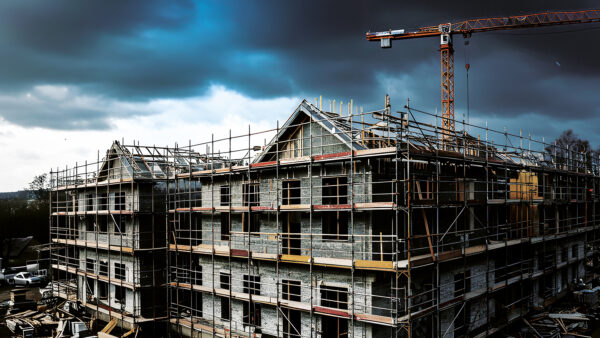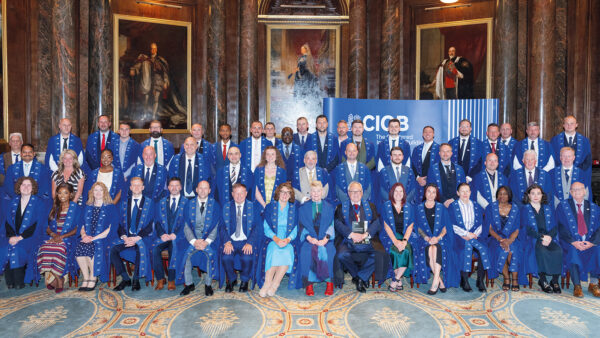
As the world changes rapidly, the CIOB faces key questions about how to adapt with it, argues David Stockdale.
We live in a rapidly changing world. In 2017, there were 29 cities with more than 10 million people. By 2030, there will be 43 – and 14 will be home to more than 20 million people. These cities need to be clean and safe. They also need clean transport systems, and green areas that everyone can enjoy,
More change is on the way:
- More than 50% of the global population lives in urban areas at present and this proportion is set to rise by 66% in eight years.
- By 2040, it is projected that more than US$65 trillion of infrastructure will be built – more than all the infrastructure that exists today.
- United Nations trends predict that the birthplace of the next industrial revolution will be in Sub-Saharan Africa.
- Cities occupy 1% of the world’s land yet are home to about half of the human population.
- Cities account for 75% of total energy consumption and 80% of total carbon emissions.
All of this change should cause the Chartered Institute of Building (CIOB) to ask some key questions:
- What is the purpose and role of the CIOB in the next Corporate Plan?
- Who are the CIOB’s key stakeholders in relation to its Corporate Plan?
- What are the CIOB’s major strategic objectives right now?
- Is the current CIOB value proposition to its global membership relevant in a rapidly changing world?
How does the CIOB respond? There are two key terms in the text of the CIOB’s Royal Charter: public benefit, and public education. The CIOB policy response should incorporate the UN Sustainable Development Goals (SDGs) as a global policy framework to facilitate change. The key actors in the implementation of the SDGs are national governments since they are formally in charge of designing and implementing policies.
A facilitation service could be delivered by working with governments, charities/non-governmental organisations, and stakeholders to identify nationally (and within the scope of the Royal Charter) relevant SDG targets. Then using the collective knowledge of global best practice/lessons learned from the global membership captured within a central database. In addition, the CIOB Academy and the CIOB codes of practice would reinforce global knowledge transfer/feedback to ‘client’ countries committed to the SDGs.
The CIOB’s ‘strategic umbrella’ of the SDGs will require strategic enablers and key drivers to deliver a facilitation skill set:
The enablers
SDG 4: Quality Education. Ensuring that inclusive and equitable quality education and the promotion of life-long learning opportunities for all. Concentrating on Target 4.7 that states that by 2030, all learners acquire the knowledge and skills needed to promote sustainable development. Learning is about adjusting beliefs to change future action. This should involve education regarding the SDGs to the global membership and future potential CIOB membership currently within the global school system.
SDG 17: Partnering for the Goals. Strengthening the means of implementation and revitalisation of the global partnership for sustainable development. To make the SDGs a reality will require the participation of governments, the private sector, and civil society organisations. Target 17.16 (Multistakeholder Partnerships) states that global partnerships must mobilise and share knowledge, expertise, technology, and financial resources. To support the achievement of the SDGs in all countries, in particular developing countries.
The key drivers
SDG 9: Industry, Innovation, and Infrastructure. (Connected to SDGs 8, 11, 13 and 17). Building resilient infrastructure, the promotion of inclusive and sustainable industrialisation and fostering innovation. Goal 9, in simple terms, states that for a society to grow it should encourage industries that bring opportunities to everyone while protecting the environment.
The global building and construction industry provides a key economic driver for global sustainable development – but it also provides a significant environmental risk to the planet in terms of current cement and steel production/usage. Goal 9 is also very similar to SDG 8 (Economic Growth), in that it outlines crucial factors for economic growth and balances this with concerns for the environment.
SDG 11: Sustainable Cities and Communities. (Connected to SDGs 3, 6, 10 and 12). Making cities and human settlements inclusive, safe, resilient, and sustainable. This SDG is a bridge between the social dimension and the environmental dimension of the SDGs.
In addition, the adoption of a CIOB Stakeholder Value strategic approach, which seeks to generate value for all the stakeholders it serves, must be a crucial catalyst for change. This must encompass future generations as a key stakeholder group, this being particularly important for long-term environmental issues such as climate change and protecting biodiversity.
Strategic stakeholder value should see the role of the Royal Charter as generating value for all the stakeholders CIOB serves in the advancement of the public benefit and public education in the science and practice of building and construction – within a rapidly changing world.
In the words of Stephen R Covey, the CIOB must first seek to understand, and then be understood within the context of the United Nations Sustainable Development Goals policy framework. Part of this process is to understand the psychology of super-consumers’ motivation that is crafted by ‘Optimism Bias’ in the developed world – and its impact on the developing world.
We as super-consumers are on a path of self-destruction. Where does the CIOB want to position itself to address our global challenges? Does the CIOB global membership currently have the gravitas that comes from knowledge and experience to maintain its leading position in our changing world?
David Stockdale FCIOB is director of Briga Consulting.











